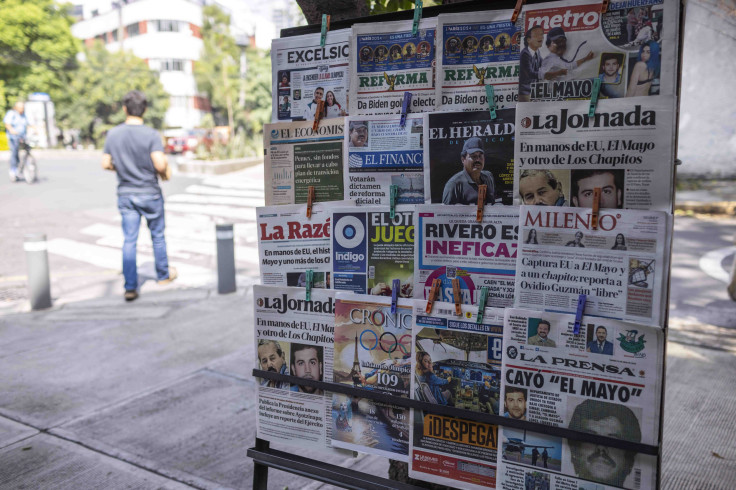
An operative of the Sinaloa Cartel— one of the most powerful and feared criminal network groups in the world— sat down with CNN's Isobel Yeung for an interview and discussed the Trump administration, the cartel's impact on Mexico and the business of drug trafficking: "if there weren't any consumers, we would stop," he summarized.
The man, whose identity or location were not revealed, had a hefty build and was wearing a "Joker" movie baseball cap pulled down over his head, a scarf wrapped tightly around his face, sunglasses to disguise his eyes, and blue latex gloves to cover the tattoos on his hands. He carried an assault rifle and two walkie-talkies, from which cartel look-outs provided a constant stream of feedback on the movements of the Mexican military during the conversation.
The cartel member told CNN he produces fentanyl— a synthetic opioid that has become the most common drug involved in overdose deaths in the United States.
"Of course, of course, things are sad," the man told the news outlet. "(But) you have to continue... Families have to eat," he shrugs.
The precursor chemicals used to make fentanyl are largely sourced from China, before being cooked up in labs across Mexico, where cartels have well-established control over entire territories— and relatively easy access to the U.S. market. The Mexican government denies that fentanyl is produced in the country, claiming instead that most synthetic labs they discover are being used to make methamphetamine.
The gang member acknowledged Trump's designation of the cartel as a terrorist organization, and his message in return was simple: "my respect to him. According to him, he's looking out for his people, but the problem is that the consumers are [in the United States]. If there weren't any consumers, we would stop."
Over the last seven months, violence has surged across Sinaloa, particularly Culiacan. The most recent flare-up is the result of an internal war between two factions, which began after Ismael "El Mayo" Zambada was captured and taken to Texas, where he was imprisoned. Zambada has accused the sons of "El Chapo" of being behind the action, and the cartel faction loyal to him has been battling the "Chapitos" ever since. The situation has resulted in people dying from cartel violence almost on a daily basis and children being afraid of even going to school Yeung said in her report.
For nearly two decades, Mexican authorities have been waging a battle against the cartels, with limited results. But amid a fresh wave of violence and pressure from Trump in the form of threatened U.S. military intervention and higher import tariffs, President Claudia Sheinbaum has adopted a more head-on approach to tackling the issue, overseeing over 17,000 arrests for his impact crimes nationwide in the first six months of her administration, and more than 140 tons of drugs seized, including 1.5 tons of fentanyl and over 2 million fentanyl pills.
© 2025 Latin Times. All rights reserved. Do not reproduce without permission.




